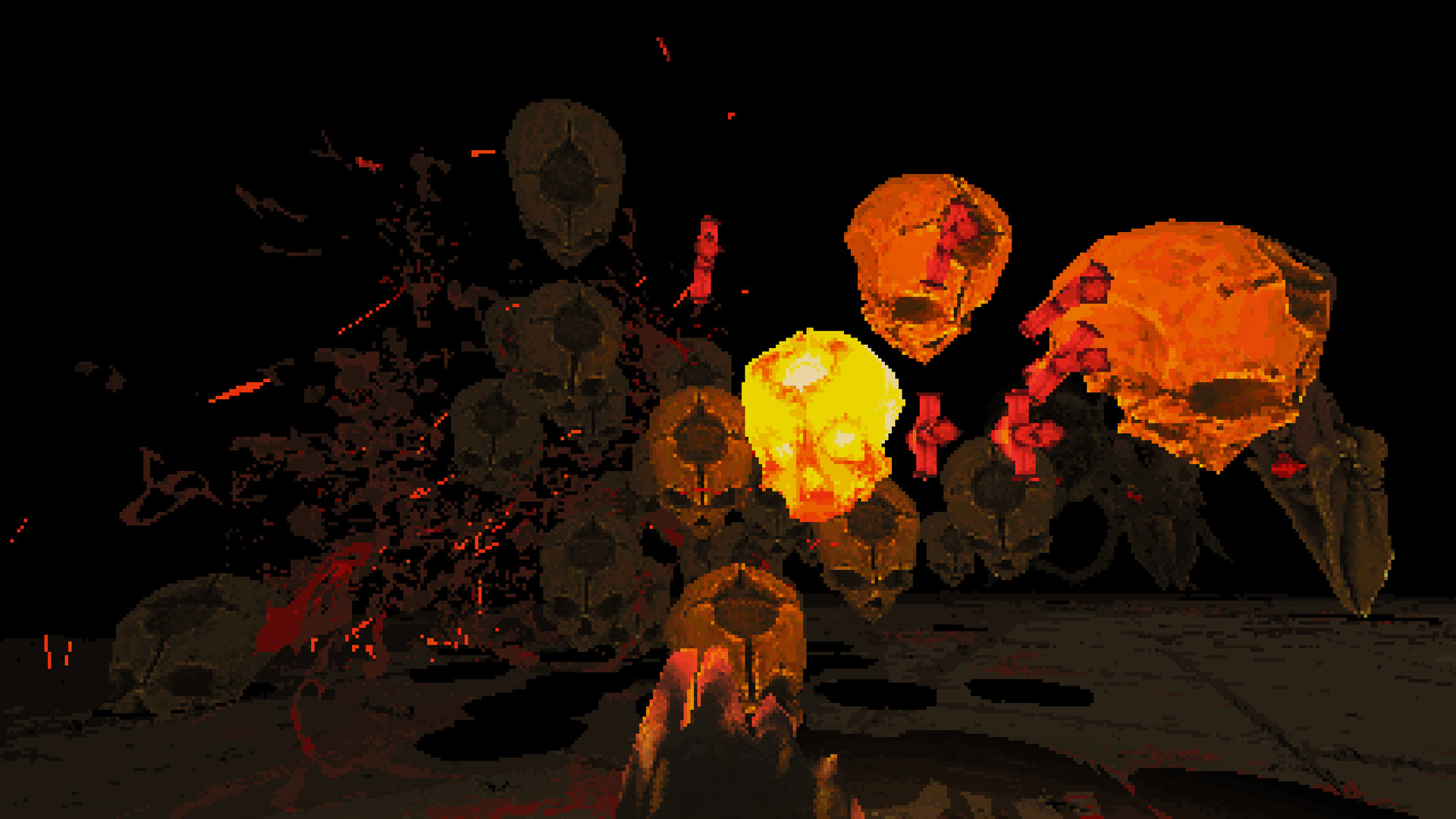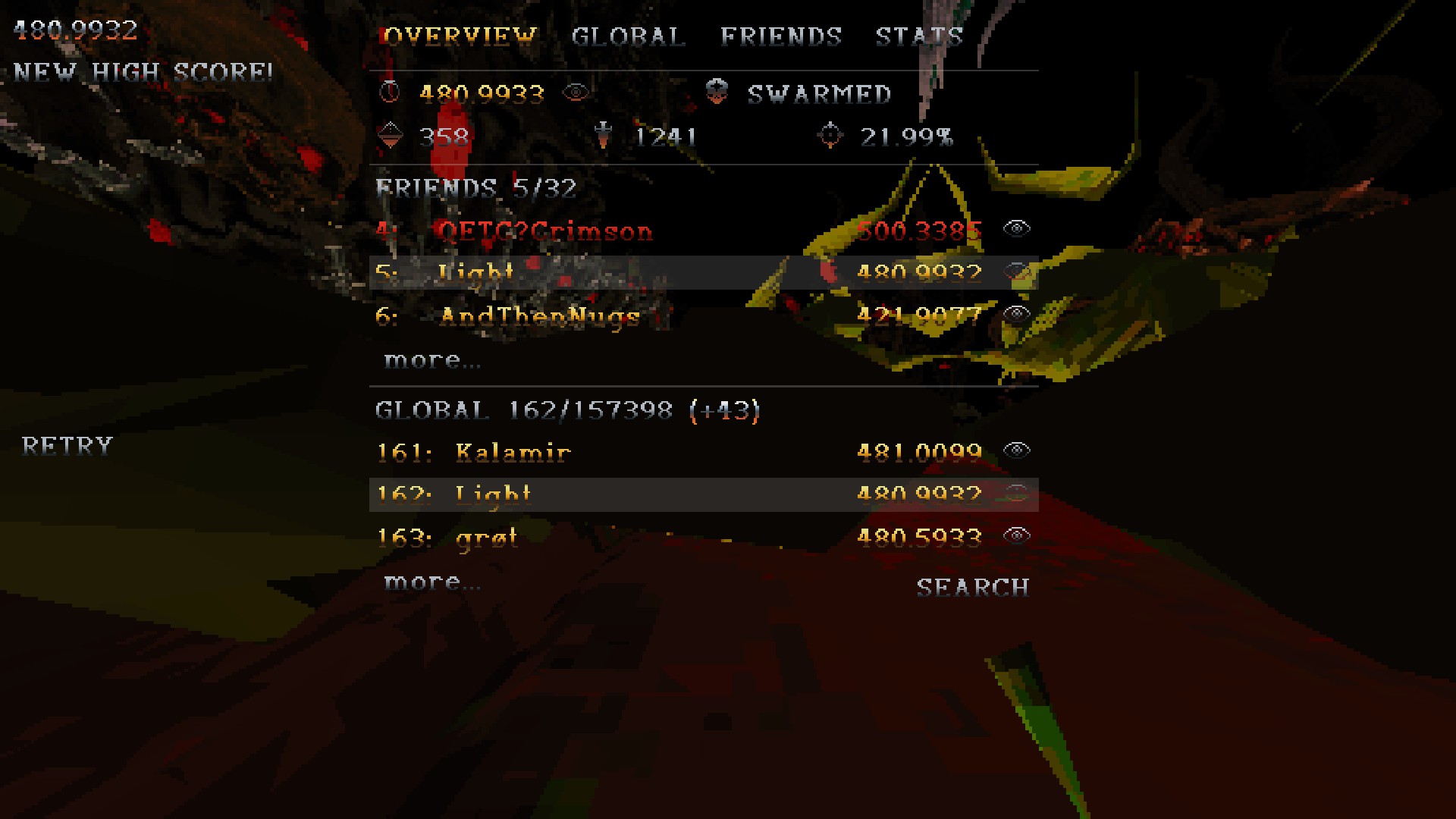

The actual content of these conversations is compelling but it is the form that still feels revolutionary years past release. But because this is a video game the conversations in Tacoma are rewindable and can be distorted.
#STEAM MUST BE RUNNING TO PLAY DEVIL DAGGERS FREE#
The closest comparison to Tacoma is an immersive play like Sleep No More, where the actors perform within a space and you are free to follow whichever path is most interesting. Gone Home popularized the first-person exploration “walking sim” genre and Tacoma builds upon it while introducing a radical non-linear storytelling engine unparelled across games.

Both were impactful – to The Discourse and to interactive fiction design – but I think Tacoma will ultimately have the longer tail (not culturally - Gone Home was a singular moment - but from a design and storytelling perspective). I went back and forth between whether to include Tacoma or Gone Home (Fullbright, 2013) on this list. Broken Age captures this drive and precarity as part of the text: an imperfect game trying desperately to get out the door, and somehow Elijah Wood is here. Double Fine’s strength is in their charm and ability to pull off concepts that only succeed through the studio’s unending tenacity.ĭouble Fine’s output through the 2010s was unrelenting and overwhelming, hitting more often than not even if the studio itself seemed perpetually on the brink of complete financial collapse. But it’s never enough to destroy the game.

It’s too ambitious, gets bogged down in the second act, and is built on design tropes a decade expired. It’s also messy in the way all Double Fine games are messy. It brings together their skills as adventure game designers, comedy writers, and corrallers of talent to tell a story about identity, tradition, and the pop culture omniscience of Jack Black. Bliss.īroken Age is remembered more for its Kickstarter drama than as a game, which is frustrating as it is Double Fine’s best work (save, maybe, Psychonauts (2005), but that’s an argument to be had). Ultimate is a fitting museum of video game history as told by Masahiro Sakurai: densely populated, overflowing with flavor text, and all in service of watching Luigi headbutt a Jigglypuff. The third-party character dam that Sonic broke in Brawl is now flooding the valley with everyone from Banjo Kazooie to Joker from Persona 5, and though nobody should, it’s now possible to play with eight people at once which is just the best and worst way to Smash. Its roster was intense at launch and continues to grow with DLC. Ultimate leans the most into pure extravagance and Smash-as-spectacle. has always been a game of throwing Happy Meal toy versions of my favorite Nintendo characters at one another and delighting in the sheer chaos that ensues. There are surely those who enjoy the actual fighting mechanics - maybe people even like the super crunchy board game campaign - but for me, Smash Bros. Ultimate is one of gaming’s greatest toyboxes. Video games are bad, except when they’re good, and thankfully that happened often enough for me to group 50 of them together and call it a decade.Ĥ9. Whether that’s just a new game to play or different way to think about it. This could never be a definitive list of any kind, but I got a lot out of putting it together and I hope you get something from reading it. Please indulge me with the games that mean something to you that I missed. Maybe that doesn’t make them all “good” but they all mean a lot to me, whether as games or time capsules for how I was feeling, or as something that changed how I understand art and writing about it. If there’s any through line to this gargantuan jumble of words, it’s that all of these games resonated with where I was in life while playing them. Games that upended and changed my relationship to the medium. You’ll find some of the usual suspects here, but in looking over other similar lists I found that what stood out for me over the decade was not flashy AAA games with Maximum Content. In that regard my tastes sure have changed a lot. As damaging as canon’s can become, they can also help remind us about the media that impacted us, what hasn’t held up over the years, and what has gained greater resonance in that same time. You love a list (you clicked on this, didn’t you?). “Why a games of the decade list now? Why a list at all?” Best games list are bad for a lot of reasons (go watch Sarah Zedig’s great video on the topic), and though I can say that this list is different for reason X, Y, B, the mechanics are the same so I’m just calling it what it is. A lot has happened as I’ve been trying to write this list, but what’s important is that video games are good and here and should definitely be allowed to exist.


 0 kommentar(er)
0 kommentar(er)
